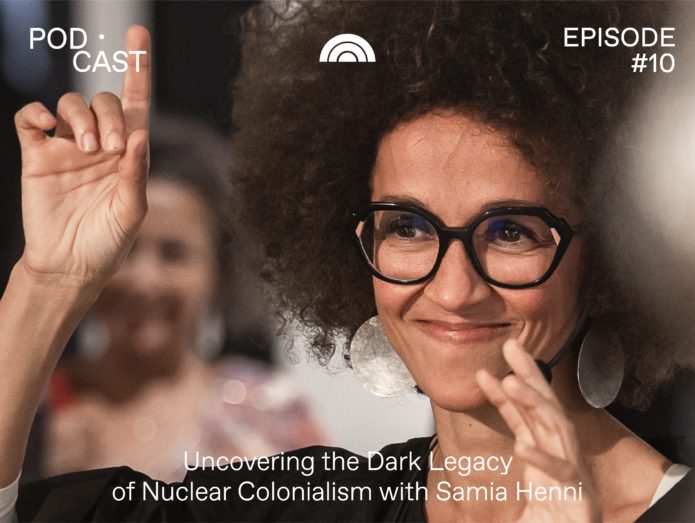 Tour by Samia Henni through the exhibition 'Performing Colonial Toxicity' (2023). Photo: Maarten Nauw / Framer Framed
Tour by Samia Henni through the exhibition 'Performing Colonial Toxicity' (2023). Photo: Maarten Nauw / Framer Framed Samia Henni
Samia Henni (b. 1980, Algiers, Algeria) is an architectural historian, exhibition maker and educator. Working through textual and visual strategies, her practice interrogates histories of the built, destroyed and imagined environment—those produced by processes and mechanisms of colonisation, forced displacement, nuclear weapons, resource extraction and warfare.
Currently, she teaches at McGill University’s Peter Guo-hua Fu School of Architecture. She was previously a visiting professor at the Institute for the History and Theory of Architecture (gta), ETH Zurich, the University of Zurich and a Fellow at Edinburgh University.
Henni’s research has culminated in the award-winning book Architecture of Counterrevolution: The French Army in Northern Algeria (gta Verlag, 2017, EN; Editions B42, 2019, FR) and Colonial Toxicity: Rehearsing French Radioactive Architecture and Landscape in the Sahara (If I Can’t Dance, Framer Framed, edition fink, 2024), as well as in the edited volumes War Zones, gta papers no. 2 (gta Verlag, 2018) and Deserts Are Not Empty (Columbia Books on Architecture and the City, 2022).
She curated several exhibitions including Discreet Violence: Architecture of the French War in Algeria, gta Exhibitions, ETH Zürich (2017), Archives: Secret-Défense? ifa Gallery/SAVVY Contemporary, Berlin (2021), Housing Pharmacology, Manifesta 13, Marseilles, (2020) and Discreet Violence: Architecture and the French War in Algeria (Zurich, Rotterdam, Berlin, Johannesburg, Paris, Prague, Ithaca, Philadelphia, and Charlottesville, 2017–22).
At Framer Framed in Amsterdam, Samia Henni presented the exhibition Performing Colonial Toxicity (2023) in collaboration with Framer Framed and If I Can’t Dance I Don’t Want To Be Part Of Your Revolution. Samia Henni emphasises the importance of including the voices of Sahara’s inhabitants in her latest project. Performing Colonial Toxicity explores the enduring impact of France’s nuclear program in the Algerian Sahara (1960-1966) on both human and non-human life. Henni’s ongoing research reveals that the consequences persist beyond colonial occupation, affecting various life forms. The exhibition layers many forms of evidence: written, spoken, and felt in an attempt to give a voice to the voiceless, and appeal for redress and reparation.
In conjunction with the exhibition a new publication was presented by Samia Henni, co-published by Framer Framed, If Can’t Dance and edition fink. The publication, Colonial Toxicity: Rehearsing French Radioactive Architecture and Landscape in the Sahara (2024, 2025), compiles years of research and collaboration with among others the ‘Testimony Translation Project’ showcasing testimonies from French and Algerian victims, scholars and eyewitnesses.
- Parse Journal - Exhibition as a Form of Writing. On 'Discreet Violence: Architecture of the French War in Algeria'
- Critique d' art - Samia Henni, about Colonial Toxicity - by Kyveli Mavrokordopoulou
- e-flux - Jerboasite: Naming French Radioactive Matter in the Sahara
- Metropolis M - A conversation with Samia Henni by Anna Bitkina
- Personal website of Samia Henni
Links
Exhibitions
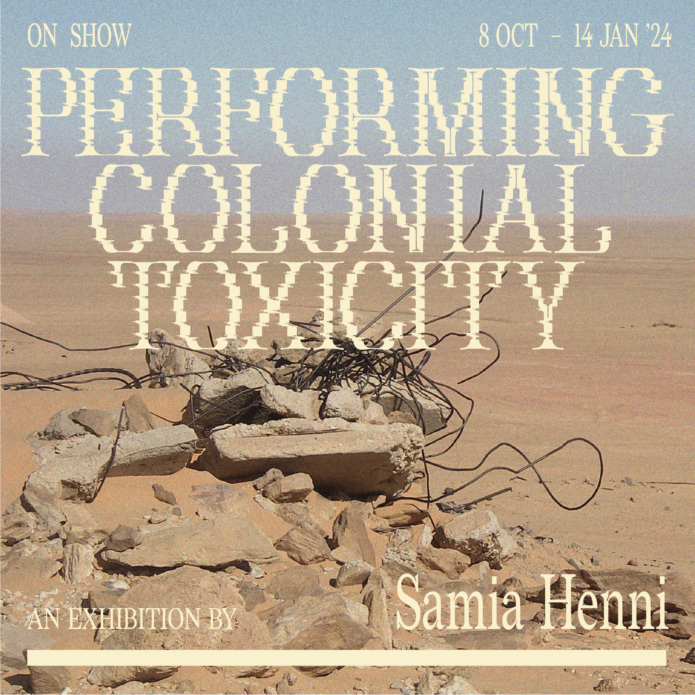
Exhibition: Performing Colonial Toxicity
An exhibition by researcher and architectural historian Samia Henni, in collaboration with If I Can’t Dance, I Don’t Want To Be Part Of Your Revolution
Agenda
Finissage: Performing Colonial Toxicity
Finissage programme for the exhibition Performing Colonial Toxicity including a book launch of Samia Henni's newest publication.
Exhibition tour by architectural historian Samia Henni
Screening: And still, it remains
Film screening in within the context of the exhibition, Performing Colonial Toxicity.
Performance Lecture by Samia Henni
In the context of her exhibition 'Performing Colonial Toxicity' now on show at Framer Framed
Performing Colonial Toxicity Tour: The Testimony Translation Project
Guided tour reflecting on the testimony translations
Opening: Performing Colonial Toxicity
An exhibition by researcher Samia Henni on the redacted history of French nuclear colonialism in the Algerian Sahara
Magazine
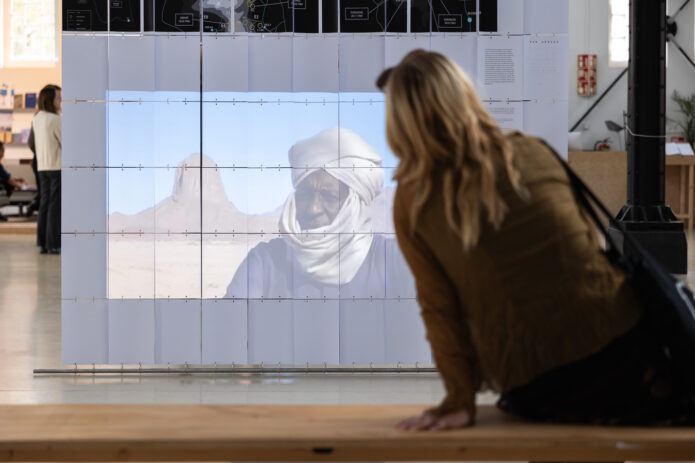
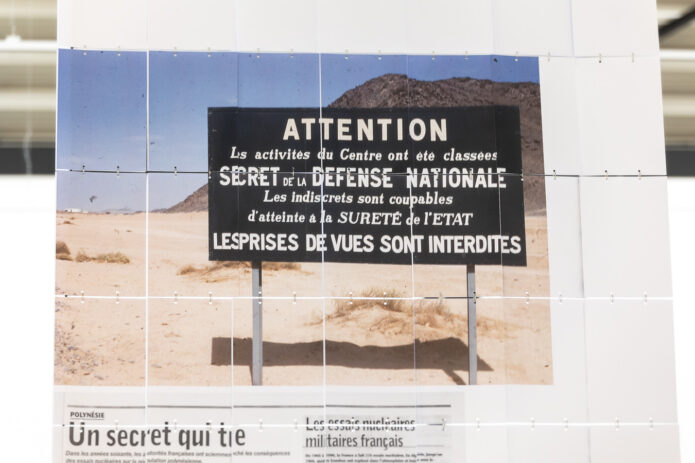
Performing Colonial Toxicity travels to Zurich, London and Paris

Bookshop Selection: Colonial Toxicity by Samia Henni
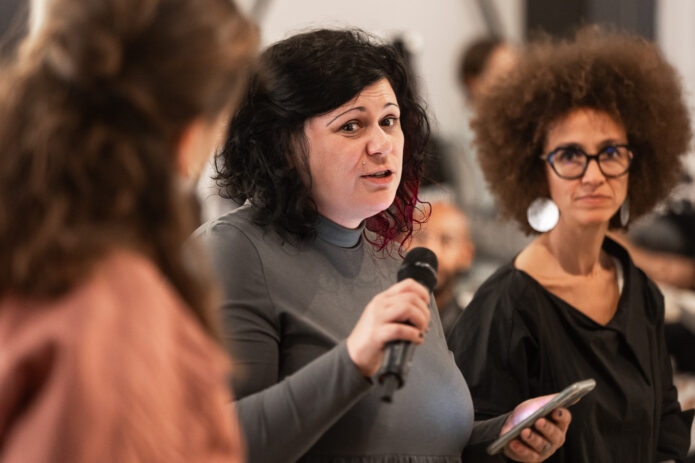
Video: Megan Hoetger in conversation with Samia Henni
